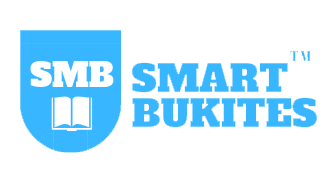Are you a final-year student worried about how life after school is going to be? Or a fresh graduate confused about how to start work life after school?
Leaving college and entering the workforce can be an exciting but daunting experience. To ensure a seamless transition, you need to have a plan in place.
In this article, we’ll explore the key elements of a successful transition from college to career, and provide tips on how to make the most of this exciting new chapter in your life.
How To Transition From College To Career
Are you scared success might come hard after college? Well, everything is about leveraging the right opportunity and moulding it into an advantageous tool.
Here are a few tips on how to transition from college to a career:
- Assess your skills and interests
The first step in transitioning from college to a career is to assess your skills and interests. You need to have a clear understanding of your strengths and weaknesses, as well as your passions and career goals. This will help you determine what type of job or career path is right for you.
- Network and build relationships
Networking is a crucial part of any successful job search. You need to connect with people in your industry or field of interest, attend career fairs, and take advantage of alumni networks.
You can also make strong connections and build relationships during your SIWES program with professionals and peers can help you gain valuable insights, and even lead to job opportunities.
- Create a standout resume and cover letter
Your resume and cover letter are your first impression with potential employers. They need to be polished, professional and highlight your skills and accomplishments.
Be sure to tailor your resume and cover letter to each job application and make sure they showcase your unique value proposition. You can also write your first curriculum vitae (CV) with no experience by outlining your best skills, and internship experiences which can help you stand out more.
- Develop your interview skills
Interviewing is a skill that takes practice. You need to be able to use your skills, accomplishments, and interest to impress potential employers. Practice your interviewing skills with friends or family, research the company and prepare thoughtful questions to ask, and make sure to follow up after the interview.
- Negotiate and evaluate job offers
Once you have landed a job offer, the next step is to negotiate and evaluate it. Be sure to research industry standards whether remote jobs or on-site jobs for salaries and benefits and negotiate for the best possible offer. Take time to evaluate the job offer and make sure it aligns with your career goals and interests.
- Balancing Work and Life
As you make the transition from college to career, it’s important to find a balance between work, school, and personal life. Prioritize self-care and make time for hobbies and socializing. This will help you avoid burnout and maintain a healthy work-life balance.
Conclusion
Transitioning from college to a career can be a daunting task, but with the right mindset and preparation, it can be an exciting and rewarding experience. Remember to plan your career, build your skills, and network, and maintain a healthy work-life balance, and you’ll be well on your way to a successful transition from college to career.
I hope this article provides you with valuable insights and tips to help you make a seamless transition from college to career.
Here Are Some Frequently Asked Questions on College To Career Transition
Question: What steps can I take in college to prepare for my future career?
Answer: Some steps you can take include gaining relevant experience through internships or part-time jobs, building your professional network, developing your skills through extracurricular activities or coursework, and researching potential career paths.
Question: As a fresh graduate when should I start looking for job opportunities?
Answer: It’s a good idea to start looking for job opportunities early on in your final year of college, or even during your last semester. This will give you time to apply for multiple positions and go through the interview process before graduation.
Question: How do I know what career path to pursue?
Answer: You can start by exploring your interests, strengths, and values, and then researching careers that align with those factors. You can also speak with professionals in fields you are interested in, take career assessments, and seek guidance from career counselors.
Question: How do I make myself stand out to employers in my first interview?
Answer: You can make yourself stand out to employers by showcasing your relevant skills and experience, demonstrating your passion and enthusiasm for the field, and highlighting any unique achievements or accomplishments.
Question: What should I include in my resume and cover letter with no experience?
Answer: Your resume should include your relevant work experience, education, skills, and any relevant extracurricular activities or volunteer work. Your cover letter should introduce yourself, explain why you are interested in the position, and highlight how your skills and experience align with the requirements of the job.
Question: How do I prepare for my first job interview?
Answer: You can prepare for a job interview by researching the company and the position, practicing common interview questions, and preparing examples of your relevant experience and skills. It’s also important to dress professionally, arrive on time, and demonstrate good communication skills during the interview.
Question: What should I do if I don’t get the job I applied for?
Answer: If you don’t get the job you applied for, it’s important to stay positive and keep trying. You can ask for feedback from the employer to help you improve your future job applications, and continue networking and applying for other job opportunities that align with your career goals.
Don’t forget to keep striving and check our blog smartBukites.com for more articles to help you in your career journey. Good luck!
